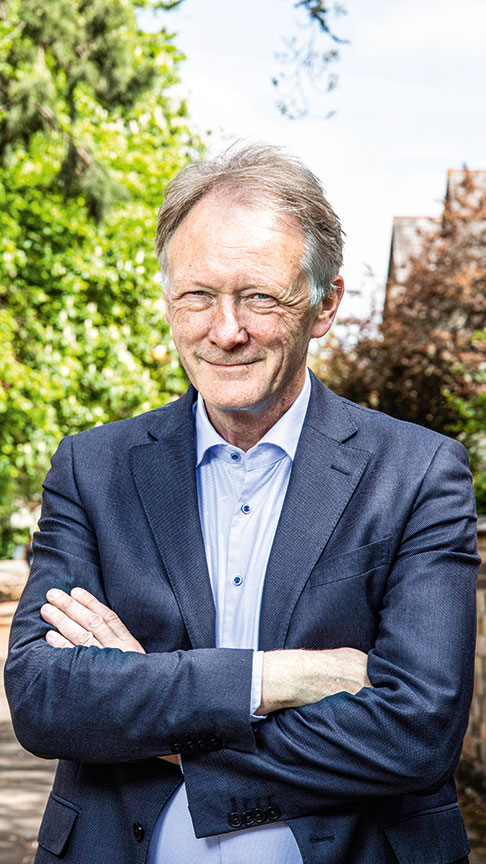Interview: Johannes Göbel
Lessons of the past
Professor Martin Schulze Wessel, DAAD alumnus and one of the most renowned German experts on Eastern European history, discusses the war in Ukraine.
Professor Schulze Wessel, the Russian attack on Ukraine has been explained at least in part by Vladimir Putin’s view of history. In your view, what role does history play in this war in Europe?
Schulze Wessel: Vladimir Putin believes history forms the framework for his war goals. He derives the idea that an independent state of Ukraine has no right to exist from a very particular view of history. However, this can be contested by a narrative based on firm foundations: there was already a long tradition of independent structures before the national history of the present state of Ukraine began over 30 years ago. In my opinion, the early modern era, when Ukraine was part of the Polish-Lithuanian aristocratic republic, is seminal. During that period western structures became accepted in Ukraine – for example, opportunities for participation by the aristocracy and Western European town privileges. Ukraine gained experiences that differentiated it significantly from the Russian Tsarist Empire.
You are co-chair of the German-Ukrainian Commission of Historians that was founded in February 2015 and receives DAAD funding. What has the commission achieved in the last seven years – and how will it continue in the future?
Schulze Wessel: In recent years the German members of the Commission of Historians have learnt above all to view Ukraine in a much more wide-ranging way, going far beyond its history as part of the Tsarist Empire or the Soviet Union. One key area during the Soviet period is the focus on the Holodomor (“murder by starvation”) that was instigated by Stalin in the 1930s. The work of the commission has intensified as a result of the war. We regularly exchange views and also intend to cooperate with colleagues at a Canadian research centre on a series of digital lectures. Furthermore, we are planning a programme to preserve and archive Ukrainian cultural assets in cooperation with the Herder Institute for Historical Research on East Central Europe.
“However, complex international situations also call for historical judgement.”
What fundamental significance does the study of the history of Eastern and Central European countries have for current policy?
Schulze Wessel: Foreign policy is much more complex today than it was during the Cold War. That also applies to policy within the EU. The Eastern and Central European countries that have acceded to the EU in recent years have introduced a totally new element into the union. For a long time now it has no longer sufficed for Germany to maintain relations with the USA and Russia, these in particular have proven to be unstable. However, complex international situations also call for historical judgement; on its own, study of the present is not enough to enable understanding, for example, with countries
such as Ukraine, Poland, the Czech Republic or Slovakia. And of course we must also continue to try to understand what is happening in Russia.
In 1991, the year in which the Soviet Union ceased to exist, you were a DAAD scholarship holder at the Russian Academy of Sciences in Moscow. How did you experience that period?
Schulze Wessel: It was a very formative time for me – also, naturally, because of major political events. As a result, for example, I saw how the flag of the Soviet Union was taken down at the Kremlin. From an academic perspective, too, this time at what was then the Institute for Slavic and Balkan Studies in Moscow was extremely interesting. I was able to do research on relations between Russia, Ukraine and Poland in the 19th century in the workgroup of an outstanding expert. The focus was on international friendship and the reconstruction of ties that emancipatory movements had with one another. Unfortunately, academic exchange with Russia is currently not possible because the country has decided to take a military course. —
Professor Martin Schulze Wessel is holder of the Chair in Eastern and Southeastern European History at LMU Munich. During the summer semester of 2022 he is conducting research at St Antony’s College in Oxford with a Richard von Weizsäcker Fellowship.


